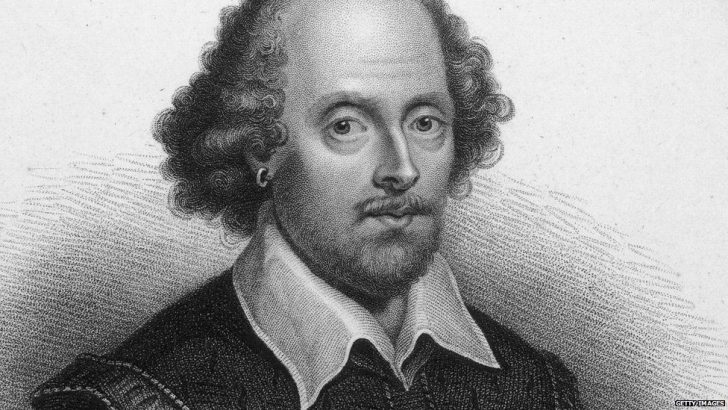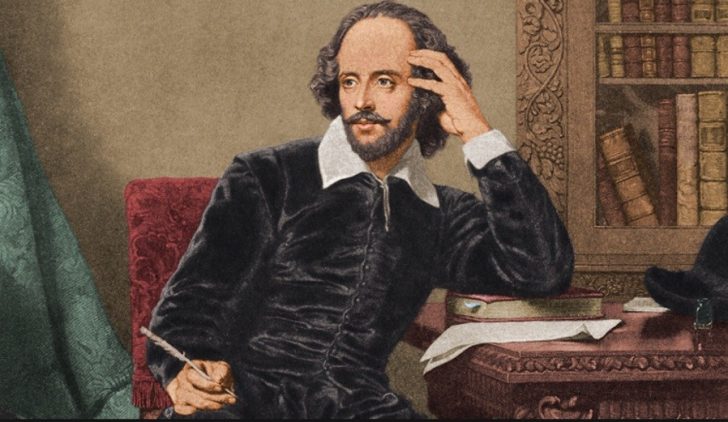9 English Words That Were Created by Shakespeare
The works of William Shakespeare have had an immense impact on the English language, with many words that we use today being coined by the playwright and poet.
Here are 9 English words we should thank the Bard for:
Multitudinous
Shakespeare is responsible for coining the word ‘multitudinous’, which describes a large number or quantity of something.

Clarke / The word “Multitudinous” is one of the go-to words of literary folks today that goes back to the 16th-century bard poet.
It first appears in his 1597 play, The Life and Death of King John: “A most multitudinous slaughter!”
Pageantry
Pageantry originally referred to expensive public displays with elaborate costumes and decorations to entertain people – usually sponsored by royalty. We can thank Shakespeare for this word as it first appears in his 1599 play All’s Well That Ends Well.
Outstay
The verb ‘outstay’ means to remain somewhere longer than expected or desired, and it appears in Shakespeare’s 1600 play The Merchant of Venice:

Webster / “Outstay” is a common English word today that was first coined by Shakespeare.
“I must go outstay my hope”.
Swagger
Shakespeare coined the term ‘swagger’, which is a proud and confident gait or manner of speaking. It first appears in his 1599 play Henry V: “He was never soldier yet that found it so hard to die; he that sleeps feels not the toothache. This is he that swaggers with his tongue”.
Swagger has since evolved into a broader meaning, referring to someone who is boastful and arrogant.
Scuffle
We can thank Shakespeare for ‘scuffle’, which refers to a brawl or fight involving several people. It first appears in his 1598 play The Merchant of Venice: “If I can close with him, I care not for his thrusts”.
Addiction
The word ‘addiction’ has been around since the 16th century. But it was Shakespeare who really popularised it by using it in his 1606 play Macbeth:

Andre / Pexels / The word “Addiction” comes directly from William Shakespeare!
“It had been hard for him that spake it to have put more truth and untruth together in few words than in that speech”.
Uncomfortable
Shakespeare was the first to use ‘uncomfortable’ as a noun, meaning something that causes distress or worry. It appears in his 1596 play The Merchant of Venice: “Thou art an elm, my husband; I a vine; whose weakness, married to thy stronger state, Makes me with thy strength to communicate”.
Dishearten
The 16th-century bard was also responsible for the verb ‘dishearten’, which means to make someone lose courage or enthusiasm. This word can be found in his 1600 play Julius Caesar: “He shall not live; look, with a spot I damn him”.
Assassination
The word ‘assassination’ first appears in Shakespeare’s 1599 play Julius Caesar: “We’ll be revenged on him: for murder, though it have no tongue, will speak with most miraculous organ”.
Today, the term refers to a political assassination or the act of killing someone for religious or political reasons.
Parting Thoughts
Shakespeare’s writings have an undeniable impact on the English language and modern culture. We can thank him for many words that we use today. And these include:
- Multitudinous
- Pageantry
- Outstay
- Swagger
- Scuffle
- Addiction
- Uncomfortable
- Disheartening
- Assassination.
Thus, the 16th-century bard poet’s timeless works continue to inspire people around the world and remind us of his remarkable legacy.